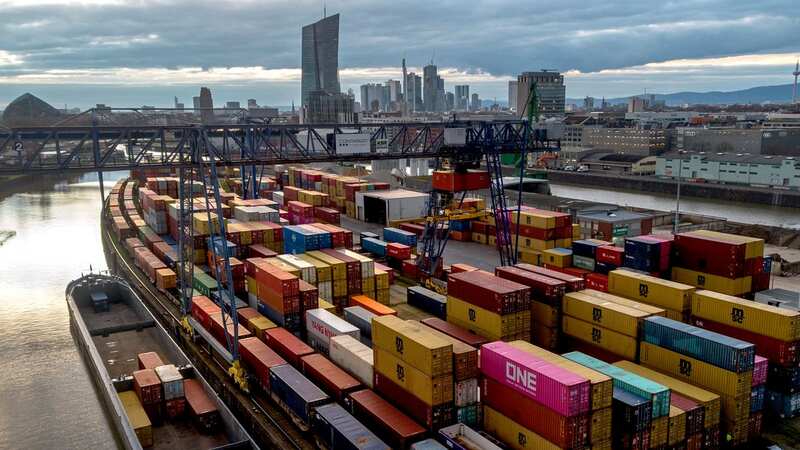Europe's largest economy is in 'troubled waters' and cuts its growth forecast

Germany, the biggest economy in Europe, is going through tough times economically and it has cut its growth predictions for the year.
It's facing various difficulties including a lack of skilled workers, excessive bureaucracy, high interest rates and slower global trade. The outlook is more pessimistic after growth forecasts of 1.3% have been downgraded to just 0.2%. Last year, the economy shrunk 0.3%.
It is recovering “more slowly than we hoped” from the shock of Russia cutting off most supplies of natural gas after its invasion of Ukraine, Vice Chancellor Robert Habeck said as he presented the government's annual economic report. “The economy is in troubled waters.”
The loss of Russian gas led to a spike in energy prices and contributed to higher consumer inflation. Despite the difficulties unemployment is still low, so conditions aren'ttypical for a country going into a recession.
"The good news is, Putin failed in his attempt to drive Germany into an energy shortage and thus into an economic catastrophe," said Habeck. And since wages are rising faster than inflation, workers "finally have more money in their wallets in real terms."
 Teachers, civil servants and train drivers walk out in biggest strike in decade
Teachers, civil servants and train drivers walk out in biggest strike in decade
The slowing down of global trade is also affecting Germany as cars and industry machines, the backbone of their economy, aren't selling as much.
There are other problems that used to haunt Europe's industrial growth engine that still persist today. High interest rates from the European Central Bank have slowed the building of new homes and offices; businesses say they can't find skilled people to hire; and too much paperwork and slow approvals delay the build of new projects like creating power from renewable sources.
Investment in the digital economy and transport infra structures hasn't been improved after the government aimed to keep budgets balanced to avoid more debt. A 2009 decision to limit deficit spending has come back to bite the current government after a constitutional court said it couldn't use special emergency money to get around deficit limits.
The coalition government led by Social Democratic Chancellor Olaf Scholz had to make last-minute changes to this year's spending. This includes getting rid of a payment to help with agricultural diesel fuel, which has seen farmers block roads in protest.
A fairly small set of tax breaks worth 3.2 billion euros ($3.5 billion) has been approved by the lower house but is being held up by the conservative opposition in the upper house. The Christian Democrats, led by opposition leader Friedrich Merz, have said they'll only agree if the farm fuel tax break is brought back.
The government has tried to tackle the lack of skilled workers by passing laws that make it easier for workers to immigrate and by reducing the time it takes to become a citizen from eight years to five, and even three in some cases.
Read more similar news:
Comments:
comments powered by Disqus

































